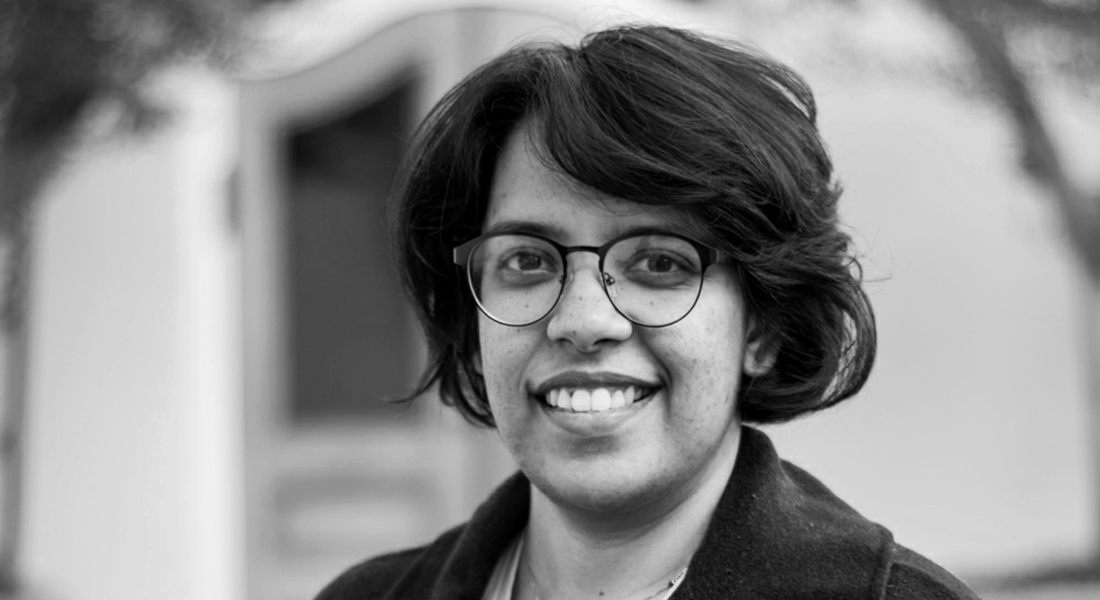Suchismita Goswami: Disaster-induced resettlement in India
Meet Suchismita Goswami, PhD fellow from the Global Health Section at the Department of Public Health, University of Copenhagen. In this month's Global Health Researcher Spotlight, Suchismita presents her research on disaster-induced resettlement with a particular focus on the city of Chennai, India.

Tell us about your research
My research is about exploring the new risks that is experienced in disaster-induced resettlement. Climate change is more and more responsible for increasing number of disasters and subsequent resettlement across the world. Yet resettlement is not risk free and my focus lies in unraveling the complexities of the new risks that arise in the aftermath of such resettlements. The new risks ranges from socio-economic risks to global health risks.
Exploring the dynamics of this city's disaster-induced resettlements not only offers insights into a pressing global issue but also connects to my own experiences and ties to the community with whom I engaged closely.
This study is situated in the city of Chennai, India, which has experienced two major disasters in the past two decades. This locale holds a personal significance for me, having become my home before embarking on my PhD journey.
What truly captivates me about this research is its interdisciplinary nature. By bringing together experts from various fields such as disaster studies, policy history, and anthropology, we engage in robust discussions that bring diverse perspectives to the table.
Why is this research important?
This research holds a significant importance in the broader context of understanding the complex interplay between climate change, disasters, and urban risks. Despite the growing recognition of these interconnected challenges, prevailing narratives and policies often tend to treat them as separate and isolated phenomena. My work seeks to challenge this siloed risk and offer a more holistic understanding.
Furthermore, my research holds particular significance due to its transdisciplinary lens. Few studies have explored urban risks from such a perspective, and I am enthusiastic about contributing to this evolving field. The transdisciplinary approach brings together knowledge from various disciplines, fostering a deeper understanding of the multifaceted nature of urban risks. This not only enriches academic discourse but also offers practical insights that can inform urban planning.
What excites you about your work and your research?
What truly excites me about my work and research is the incredible diversity and depth it brings to my daily routine. Each week presents me with a unique blend of intellectual challenges, opportunities to connect with fellow researchers, and the pleasure of discovering a well-written article.
Of course, the little joys also matter. Starting each day with a steaming cup of good coffee from the office kitchen sets a positive tone for my day. Additionally, my co- workers are not just brilliant minds, but individuals deeply rooted in the ethos of care who foster a collaborative and supportive work environment.
Which achievements do you hope to see within your research field 10 years from now?
Ten years from now, I personally want to remain relevant and interested in my work. In the research field, my aspiration is to see a global community that has significantly improved its ability to articulate and implement effective voice to counter climate change. It is my fervent hope that the policies enacted across the world will find multiple pathways to reimagine climate solutions and while doing that prioritize the protection of vulnerable populations.
What advice do you have for junior researchers in global health?
Be curious about the new advancement in global health. Read, engage and participate in multiplicities to understand global health. Lastly, be advocates of care and equity as researchers.
What is your favorite source of global health inspiration and knowledge?
My primary source of inspiration and knowledge in the field of global health is the wealth of indigenous, low-cost solutions that originate from the Global South. These solutions often emerge from communities themselves, displaying their resilience, creativity, and ability to address pressing health challenges with limited resources. These initiatives not only demonstrate the power of context specific local action around global health interventions.
I also find immense value in watching Ted talks on global health across the world and expertise. One general talk, which stayed with me, continue to inspire me personally, and professionally, is “The danger of a single story” by Chimamanda Agozi Adichie.
Contact
Suchismita Goswami, suchismita.goswami@sund.ku.dk
Ph.d.-fellow, Global Health Section, Department of Public Health, University of Copenhagen
